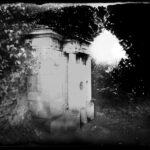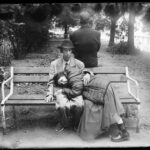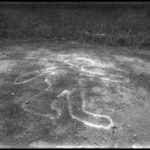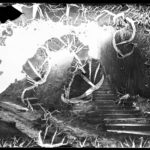
Fekete / Black
In 1963, Károly Rőth was sentenced to death and the higher court commuted his sentence to life imprisonment. At Christmas 1961, the body of 19-year-old waitress Gizella Kobzos was discovered on the railway tracks in Celldömölk, who was raped and mutilated. Immediately, suspicion fell on Rőth, who was known to be in love with the girl and had pursued her with his affections. He pleaded guilty during the trial, which he later withdrew in the final stages of the proceedings. His confession alone was not supported by clear material evidence against him. In 1969, Rőth hanged himself in his prison cell. Vendel Kézdi, a local doctor in Balogunyom, became extremely interested in the story of Rőth, who had been a patient of his. The doctor said that he was a quiet, reserved, private, easily influenced man, a man he never thought of as violent. The local doctor had many conversations about the case with his friend, police officer Aladár Lóbáli, who was involved in the investigation of Károly Rőth's case. The local doctor often joked about the fact that he had a doppelganger, a patient, Kázmér Fekete, " a man of whom he could imagine being able to kill". Between 1960 and 1978, several men, women and children disappeared in Vas County. Some of their bodies have been found, and in some cases foul play has been suspected. Lóbáli became obsessed with the case, referring to it as a serial murder and linking the unmarried, Kázmér Fekete, who lived with his parents in Kisunyom, to the cases, but never finding conclusive evidence against him. He claimed that the women who disappeared or were attacked on several occasions in the area were victims of the same perverted killer who had murdered Gizella Kobzos in 1961. Lóbáli often had dreams about the crimes, he believed in the helpful power of dreams, he often sketched the images he saw. His hundreds of pages of notes contain a wealth of theories, thoughts, fantasies, drawings and interrogation transcripts. There are some facts that can be proved from Lóbáli's theory: after his military service, Kázmér Fekete remained in the army as a career soldier. On several occasions, his fellow soldiers complained of his exhibitionist manifestations, and therefore he was discharged. He was employed as a locomotive engineer in Szombathely. Kázmér was an avid fan of movies, he was obsessed with the Derrick series. He never had a long-term relationship. During his research, Lóbáli often spoke to family members, colleagues and acquaintances of Fekete. On numerous occasions, he was reported to have told several people over drinks in pubs that he had found something "more exhilarating than sex". His obsession made Lóbáli unpopular with his superiors, and under intense pressure he resigned from the police force in 1983.










